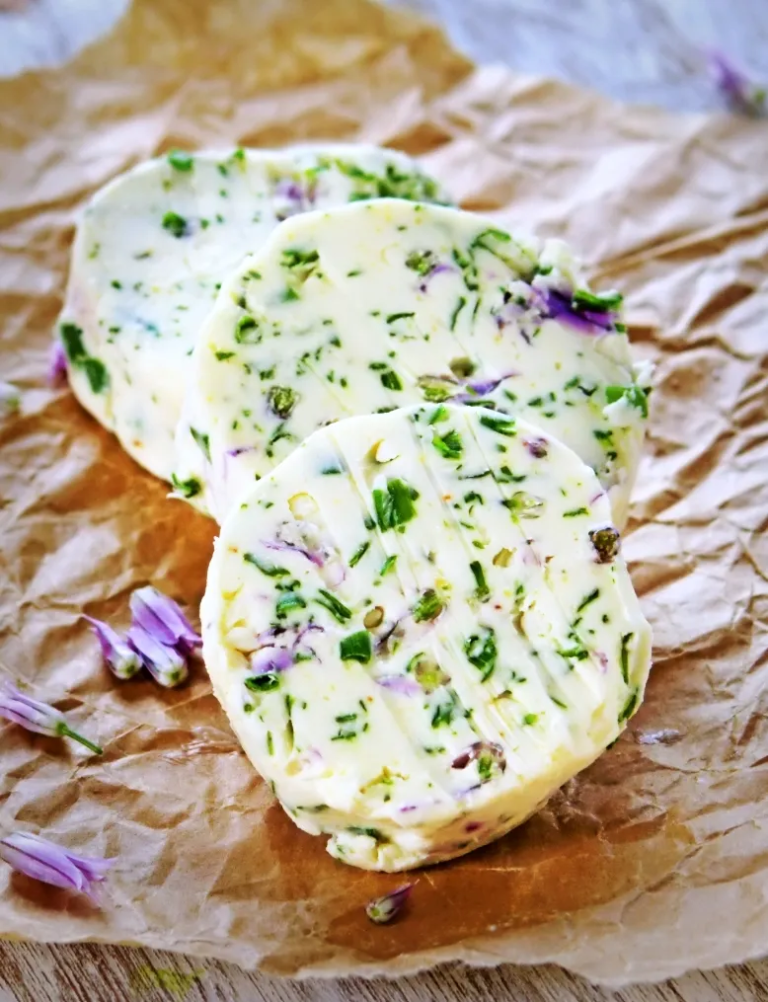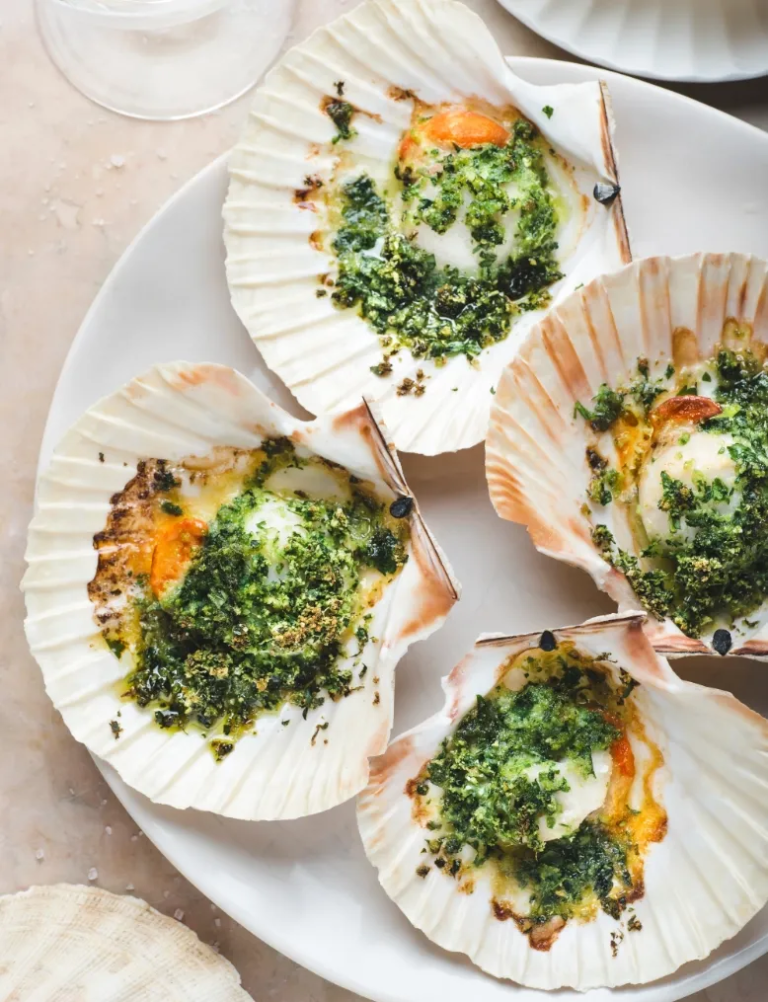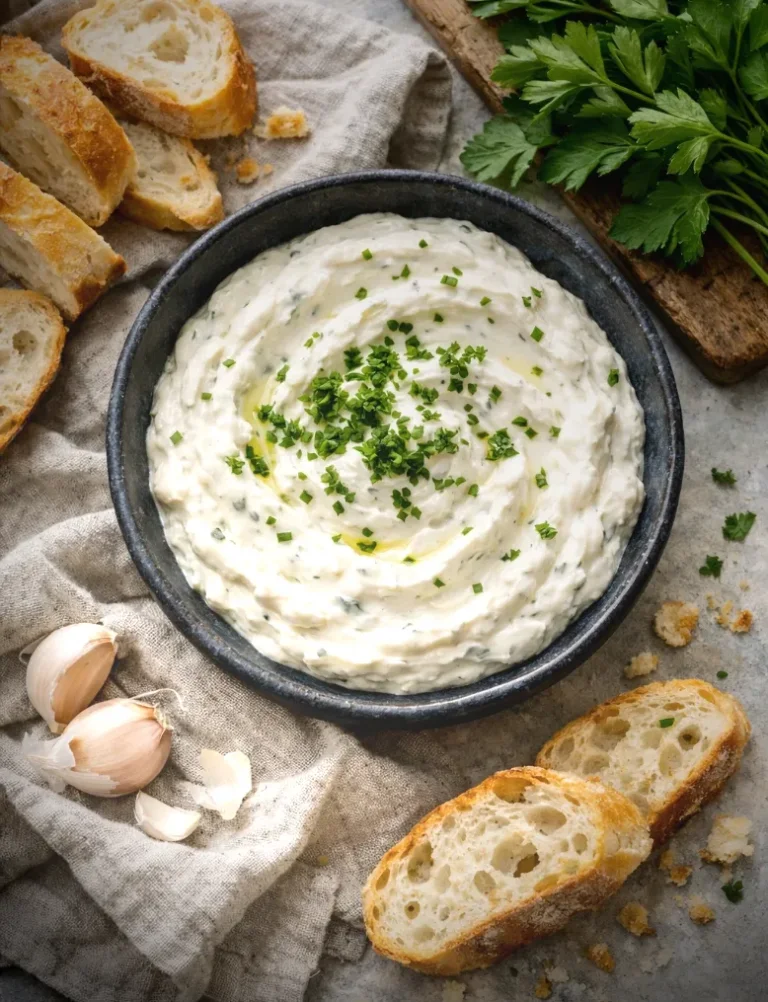Confiture de Sucrine
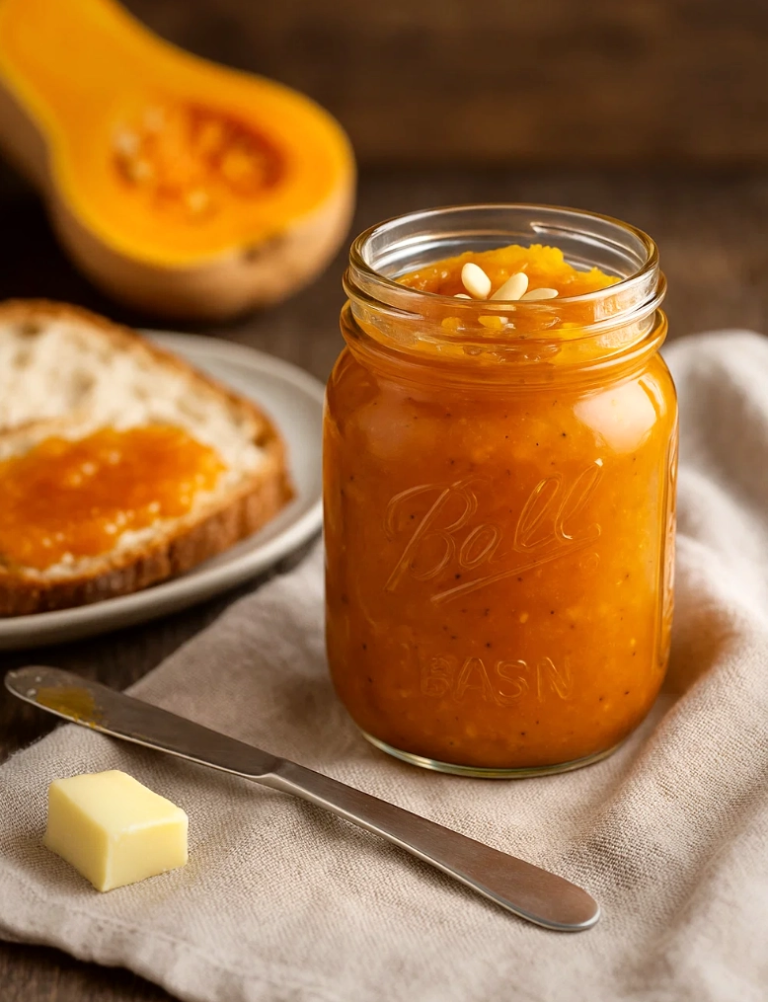

Confiture de Sucrine
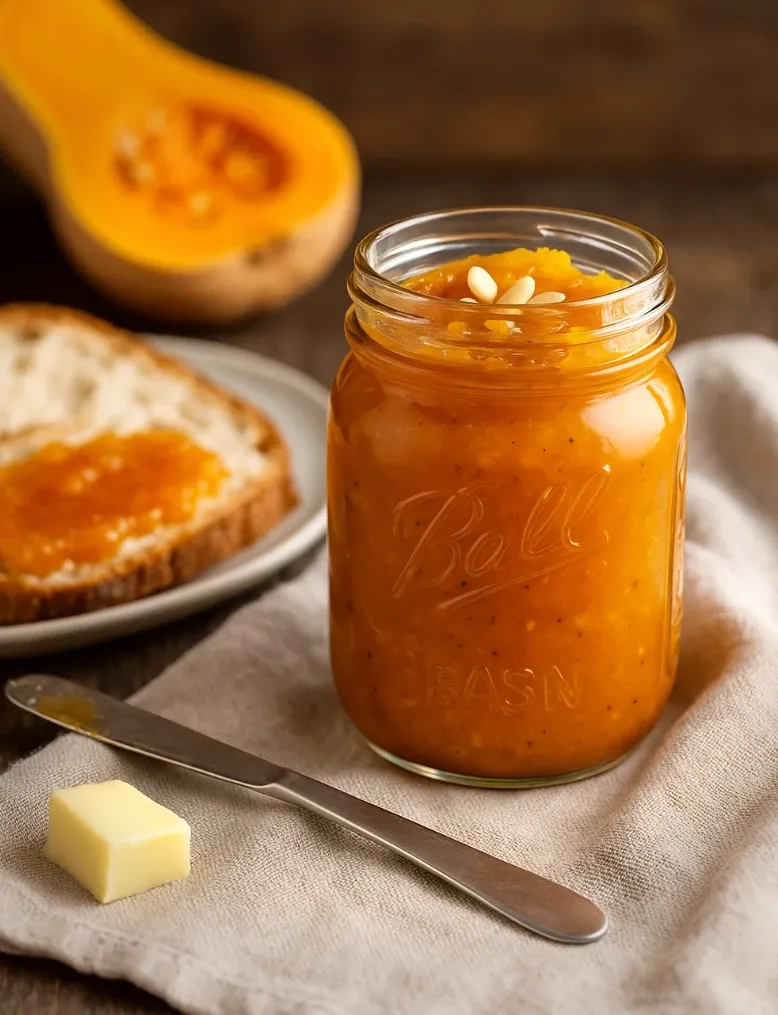

Ingredients
- 2 kg butternut squash traditionally Sucrine
- 1.4 kg sugar
- 2 mandarins optional, for extra zest and flavour
- 1 lemon juice and zest
- 1 vanilla pod or 1 tsp vanilla extract
- 2 gr agar-agar optional, for a firmer set
Equipment
Instructions
- 1. Sterilise the jars and lidsWash jars and lids in hot soapy water, rinse well, and let them air dry. Place a heatproof plate or trivet in the bottom of a stock pot (11l). Arrange the jars and lids in the pot, making sure they don’t touch each other or the sides. Fill with cold water until the jars are fully covered by at least 2.5 cm (1 inch). Bring to a boil and keep at a rolling boil for 10 minutes. Turn off the heat and leave the jars and lids in the hot water until ready to fill.
- 2. Prepare the squashCut the butternut squash (or Sucrine) squash in half and remove the seeds and fibrous centre. Peel the squash with a sharp knife. Cut the flesh into regular, medium-sized chunks. Rinse the pieces under cold water and drain.
- 3. Macerate the fruit (optional but recommended)Place the butternut squash (or Sucrine) chunks in a large bowl and sprinkle with a little sugar. Let them macerate for a few hours or overnight to draw out the juices and enhance the flavour.
- 4. Cook the jamPlace the butternut squash (or Sucrine) in a stock pot or jam pan. Add the sugar, lemon juice, and zest. If using mandarins, peel them, cut into sections, and add to the pot, along with any zest. Split the vanilla pod lengthwise, scrape out the seeds, and add both seeds and pod to the mixture. Stir well.Bring the mixture to a gentle boil over medium heat, stirring occasionally. Cook for about 30–40 minutes, or until the fruit is soft and the mixture has thickened. If you want a smoother jam, you can blend part of the mixture with a stick blender or pass it through a food mill halfway through cooking.If using agar-agar, sprinkle it in halfway through cooking and stir well to dissolve.agar, sprinkle it in halfway through cooking and stir well to dissolve.
- 5. Test the setPlace a small spoonful of jam on a cold plate. If it wrinkles when pushed with your finger, it’s set. If not, continue cooking for a few more minutes and test again.
- 6. Fill the jarsCarefully remove the jars and lids from the hot water using tongs or a jar lifter. Place them upright on a clean cloth. Ladle the hot jam into the hot jars, leaving about 1 cm (½ inch) space at the top. Wipe the rims with a clean, damp cloth to remove any drips. Seal immediately with the sterilised lids.
- 7. Cool and storeLet the jars cool to room temperature. You may hear the lids “pop” as they seal. Check the seal by pressing the centre of the lid, if it doesn’t flex, it’s sealed. Label and store in a cool, dark place. The jam will keep for several months.
Notes
- Sucrine squash: If you’re in the UK, you’re unlikely to come across Sucrine squash, but if you do spot it, please let us know where! The easiest way is to substitute with another sweet, firm-fleshed squash, like Butternut Squash.
- Mandarines: These do add a lovely citrus note, but the jam is delicious without them too.
- Agar-agar: This is optional but helps the jam set without overcooking the fruit.
- Serving: Enjoy on fresh bread, with cheese, or as a filling for pastries.
About this recipe
I owe this beautiful recipe entirely to our neighbor, Nathalie. Every October, she and her husband would use the squash they grew themselves to make jars and jars of this gorgeous autumn preserve.
The Confiture de Sucrine is a true taste of the Berry region, where the Sucrine squash is a symbol of local pride. This specific squash variety was actually almost forgotten, but passionate local gardeners brought it back to life! Now, it’s celebrated for its sweet, delicate flesh and versatility in the kitchen.
In Berry, making jam from Sucrine is a favorite autumn tradition. It’s a great way to bring families together to preserve those seasonal flavors.
The jam’s subtle sweetness, boosted by vanilla and lemon, makes it perfect for breakfast or tea time.
Share your feedback and spread the love!
If you try this Confiture de Sucrine recipe, I’d love to hear how it turns out! Leave a ★★★★★ rating and your thoughts in the comments, it helps fellow food lovers discover this recipe too. Snap a photo and tag @frogsinbritain on Instagram if you’re sharing your bake online. Don’t forget to save this recipe to Pinterest so you’ll always have it handy for your next French-inspired meal!
Disclosure: This post contains sponsored content and/or affiliate links. If you make a purchase through these links, I may receive a small commission at no extra cost to you. All opinions are my own!

